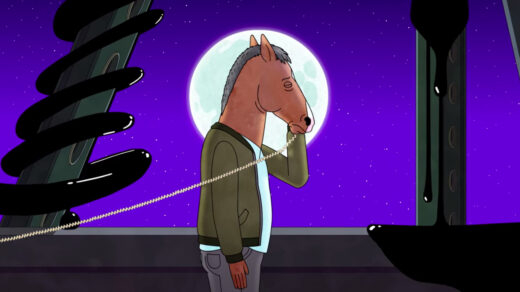I identify as non-binary. However, I was assigned male at birth, and I notice the social pressure I feel around my hair is male-oriented. Additionally, in-person comments I receive on this topic imply to me that the commenter is assuming I’m male. In this post, when I say “we” and include myself with men, I am doing so because I feel I identify with the social pressure, not because I identify as male.
Growing up, I thought I needed short hair to be taken seriously. How could I get a job with long hair? People would think I’m a lazy hippie (the second half is true, though). When I cut my long hair in high school, I felt excited, thinking I would be accepted, but also a pang of regret. When I straightened my short hair in college, I ran into a peer from high school who exclaimed, “Wow, look at that, you grew up!” But when I grew my curly hair out in grad school, I finally felt like me on the outside again. I’ve learned my hair is part of how I express my gender identity. And as I’ve aged, I’ve noticed a different kind of social pressure.
Let’s get this out of the way: My hair is thinner on top of my head, and I love my hair.
Growing up, I felt pressure to keep my hair short to convey I was a male with his shit together. Now, I feel pressure around the thickness of my hair. Because apparently, if hair gets too thin, men need to shave it. Why? Because it “looks bad”. And if we can’t accept it “looks bad”, then it is often assumed we are stuck in the past, unable to accept the inevitability of time. I’ve observed men shave their hair, and they receive comments like, “Wow, it looks so much better.” And the men reply, “Yeah, I decided it was finally time.” The way this is discussed, it’s like a fact of life, an inevitability. It’s as if everyone knows thinning hair looks bad, and once someone with thin hair accepts that, they can finally shave their head so it doesn’t look bad. To me, an implication here is that by keeping our thin hair, we are displaying something aesthetically offensive in public, and we need to remedy this by removing the offending material.
Why are these the options? Why can’t I have thin or thinning hair and still enjoy it how I want to enjoy it? Why does enjoying my hair imply I haven’t accepted my body or how time will affect it? Why is it my responsibility to hide this from society in a bid to convey self-acceptance and not others’ responsibilities to accept me as I am?
During my ongoing journey contemplating this pressure from society, I’ve considered hair restoration therapy. I’ve thought to myself, “Hair restoration is really good now. If the thinning gets ‘bad enough’, then I can opt for that.” But what is “bad enough”? Who decides what is “bad enough”? I’ve realized that, when I think “bad enough”, I’m comparing myself to others’ beauty standards and others’ views regarding acceptable forms of self-expression. Maybe one day, my hair will thin to a point where I miss my hair. Perhaps I will decide I want to opt for hair restoration. I could miss playing with my hair, styling my hair, the feeling of my hair against my face as I headbang at a concert. But I can feel the internal reasoning when I think “bad enough”, and I don’t want to pursue hair restoration for that reason. I don’t want to change my appearance because I’m worried about what others will think of me. I can feel it in my body: this reasoning does not align with my inner self.
When I think about the situation this way, I feel at peace. I realize I don’t want to worry about if my hair is thinning. Perhaps I won’t opt for hair restoration if it continues to thin. Maybe, even though there are many things I love about my long hair and I want it right now, I’ll find acceptance of my hair should it thin further. I feel men are told by society that by keeping their hair long when it is visibly thinning, they are clinging to the past and not accepting themselves as they are. Men are told that if they shave their thinning hair, they are finally accepting themselves as they are. Society tells us this supposed path to self-acceptance. Ironically, I find it much easier to accept my hair as it is when I disregard these messages from society. When I disregard these messages, I am no longer searching for the invisible “bad enough” metric.
And what about those who get convincing hair restoration? As an observer, we could have no idea they decided to pay money to have thick hair. Judging people for having thin hair also implies judging them for not having the resources to pay for hair restoration therapy. We may not realize this because we don’t always know who’s gotten hair restoration therapy.
Men have commented on my hair before, comparing it to their own: “Oh, I remember when I had hair like yours, but I can’t grow that anymore. Enjoy it while you have it.” “I had long hair but cut it short because it was thinning. You’re lucky because you have curly hair, which adds volume, so thinning doesn’t affect you as much.” Sarcastically, I think, “Thank you so much for giving me permission to have my long hair.” (Additionally, the story in my head is they are assuming I’m also male when they comment in this way, which I don’t appreciate. Because, if they weren’t assuming I was male, why would they think these male beauty standards apply to me?) Who cares how thick my hair is if I like it? If you have any comments on my hair besides “your hair looks great today”, I request you keep them to yourself. Questions about styling and products are also acceptable.
My hair is mine. I love and accept my hair. I’ll grow my hair out however I want.











